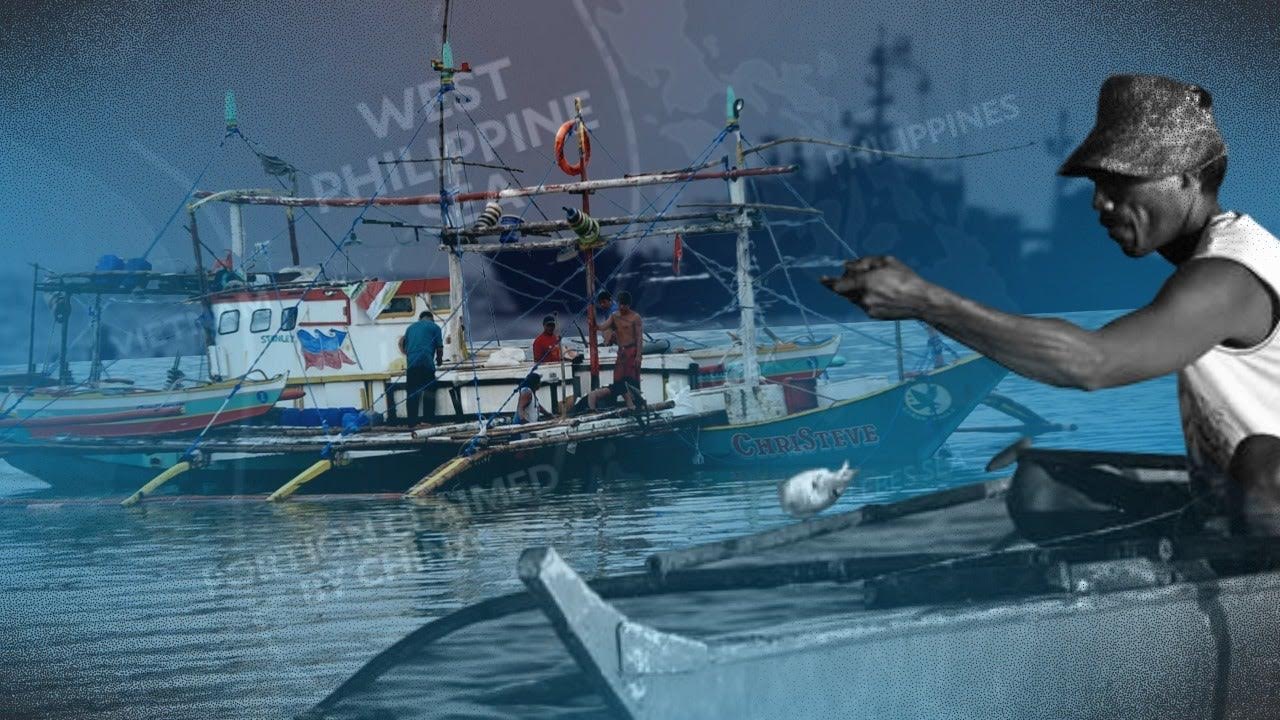MANILA, Philippines—The “gravest external threat to the Philippines since World War II,” Chinese occupation of West Philippine Sea (WPS), inside the Philippines’ exclusive economic zone, has to be fought not just by the Philippine military but by civilians, too, said the group Atin Ito.
No matter how powerful or intimidating China is, the group said “the West Philippine Sea is ours.”
Rafaela David, Atin Ito convener, told INQUIRER.net via FB Messenger, that “it is critical for ordinary citizens to take part in standing up to China as it sends a strong message that the Filipino people are united and will not be bullied by the giant nation.”
This was the reason that last Dec. 10, the coalition of Filipinos fighting for Philippine sovereignty in WPS embarked on a historic civilian-led mission to bring gifts and supplies to soldiers and fishermen stationed in Ayungin Shoal, and the islands of Patag and Lawak in the Kalayaan Island Group.
READ: Gov’t gives go-ahead to Christmas convoy to WPS
While the mission was cut short on the same day, with Atin Ito saying that it had agreed to return to El Nido, Palawan “after the constant shadowing of four Chinese vessels,” one of the 40 Filipino vessels reached Lawak Island on Dec. 11.
READ: Civilian ship, chased by China vessel, returns to Palawan
The Christmas caravan consisted of youth and sectoral leaders, fishermen, and media.
As stressed by the National Youth Movement for the WPS, the mission indicated “growing and broadening awareness coupled with bolder actions by citizens, civil society, basic sectors, party-list groups, personalities and political leaders.”
RELATED STORY: West PH Sea supply missions fruitful amid China’s bullying – official
It said that for years, it has worked on initiatives, too, “to help focus attention on the controversies surrounding the WPS,” like intensifying public awareness and exposing the presence of Chinese vessels within the EEZ of the Philippines.
Joshua Espeña, a defense and international affairs expert, pointed out to INQUIRER.net via FB Messenger that the caravan was a significant step in recognizing and asserting “our independence in the WPS.”
Strong commitment
But why do civilians have to get involved?
It was explained by David that in fighting for WPS, the military definitely has a critical role, but “in the face of a giant bully like China, we need a whole-of-nation approach.” “We need to bolt in to ensure we effectively find a peaceful resolution in reclaiming WPS.”
READ: The will to fight for what is ours
“Atin Ito is a peaceful and creative campaign that gives a blueprint on how civil society can lead the campaign for our freedom of movement in our own waters,” said David.
“We believe that increasing Filipino civilian presence in the area is a strategic move to ensure Filipinos enjoy our own waters,” she said.
This, as China’s “dashes” in the South China Sea (SCS) encroach on over 531,000 square kilometers of Philippine EEZ and extended continental shelf, including all fishery, oil, gas, and mineral resources in the area.
As pointed out by former Senior Associate Justice Antonio Carpio in his book, the area is even larger than the total land area of the Philippines, which is only about 300,000 square kilometers.
That is “what is at stake,” he said.
Extent of WPS
Carpio pointed out that “the core dispute between China and the Philippines is obvious — China wants to grab 80 percent of Philippine EEZ in the South China Sea,” including the Reed or Recto Bank off the coast of the province of Palawan.
The Recto Bank is believed to contain most of the oil and natural gas in the SCS.
Likewise, WPS is home to 4,640 square kilometers or 464,000 hectares of coral reefs, where some of the 3,053 species of fish in the Philippines thrive, based on data from the Biodiversity Management Bureau and the CARE-CaDRES Report 2019.
Back in 2022, WPS contributed 275,872 metric tons or 6.36 percent of total Philippine fish production.
As explained by Espeña, a resident fellow of the think tank International Development and Security Cooperation, “we have to understand the need to fight for the WPS: the livelihood of the people, which has a significant contribution to the economy.”
“To say it in a way that is easier to understand, [the issue] is something they can easily relate to.”
‘Rich’ in resources
It was pointed out by Espeña that “if we look at it, the WPS is being contested by countries in the region because of the developmental benefits that it can bring: fish production, energy supply that is enough for cities and rural areas, and safe sea navigation.”
READ: 87% of Filipinos believe PH gov’t should assert rights in WPS—SWS
Carpio said that China’s aggression in WPS has “far-reaching ramifications” for present and next generations of Filipinos” when it comes to national security, energy security, food security, merchant marine and commercial aviation, mineral resources security, and environmental security.
This is the reason civilians should be engaged, Espeña said, stressing that if the fight for WPS is centered only in the military, “some may think that the WPS is only a gamble of those who want to exhibit fake force through the use of firearms.”
He said this may distract the discourse on why the Philippines should assert its rights and what it should do to “fight for what is ours.”
RELATED STORY: ‘Christmas convoy’ that went to WPS took ‘unnecessary risk,’ says group
